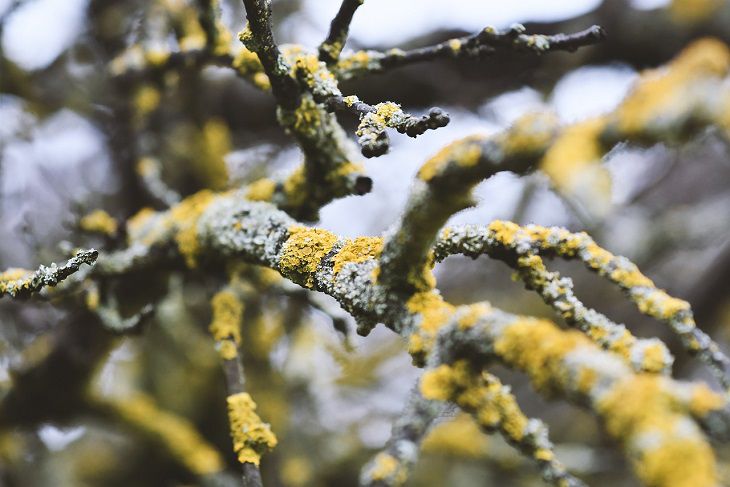Why you need to remove lichens from the bark of fruit trees: compelling arguments
Gardeners are divided into two types: some do not allow lichen to take over the branches and trunks of fruit trees, while others believe that this is a waste of time.
On the one hand, lichen will not kill a tree in a season. However, on the other hand, it still causes harm.
Lichens often become a problem in old gardens, where the air humidity is close to the forest level. In such conditions, lichen feels at ease and actively develops, capturing new surfaces.
Why you need to remove lichens from tree bark
Lichens are accumulators of spores of pathogenic fungi and bacteria. They also become a "home" for a number of pests that successfully overwinter under their canopy.
Lichens accumulate moisture in their tissues. The bark underneath them takes a long time to dry out and often rots. In the last weeks of autumn, when a sharp cold snap sets in, the rotted bark dies first, and frost cracks appear.

How to get rid of growths
Lichen is removed on average once every 3-4 years. In this case, it does not have time to reach serious sizes and take over a large area.
The growths are removed in the fall, after the leaves have fallen. Use a stiff brush or a wooden scraper.
The dead layers on which lichens and mosses lived are removed, and then the cleaned surface is washed with a 3% solution of ferrous sulfate.
The second opportunity to do a cleaning comes in the spring. This procedure can be supplemented with annual tree pruning.
